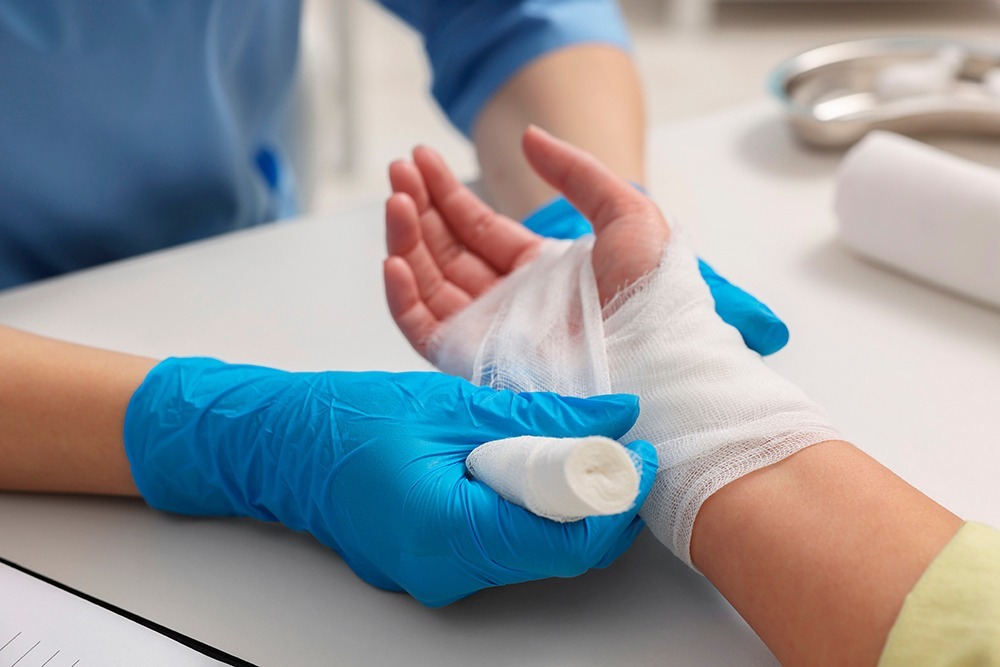Dog Bite Injury Guide: Understanding the Risks and What to Do After an Attack
Share:
Dog bites and other animal attacks can happen in a matter of seconds—but the impact can last a lifetime.
From physical wounds to lasting emotional trauma, these incidents can leave victims, especially children and the elderly, with serious injuries and mounting medical bills. Understanding the most common injuries caused by dog bites is essential not only for those who have been hurt, but also for anyone who wants to be informed and prepared.
Lacerations and Puncture Wounds: The Immediate Physical Damage
The most common injuries resulting from a dog bite are lacerations and puncture wounds. These injuries are typically caused by a dog’s sharp teeth breaking the skin, which can lead to deep tissue damage. Depending on the force and location of the bite, victims may experience torn skin, muscle damage, and in some cases, nerve damage.
Bites to the face, neck, or hands can be especially serious and may require reconstructive or cosmetic surgery. Scarring is a frequent long-term consequence, and some wounds may require skin grafts or ongoing wound care to heal properly. These injuries aren’t just skin-deep—they can severely affect mobility, appearance, and overall quality of life.
Infection: The Hidden Threat After a Bite
Many people are surprised to learn that one of the biggest dangers following a dog bite isn’t the bite itself—it’s what happens afterward. Dog mouths can harbor a variety of bacteria, and when those bacteria enter the wound, they can cause serious infections.
Common infections from dog bites include cellulitis, abscesses, and in rare but severe cases, sepsis. Certain bacteria, like Capnocytophaga canimorsus, can lead to life-threatening conditions, particularly in individuals with weakened immune systems. Tetanus and, although rare in the U.S., rabies are also potential risks that require immediate medical attention. Prompt cleaning, antibiotics, and in some cases, post-exposure prophylaxis for rabies are crucial steps following a bite.
Broken Bones and Crush Injuries: When Bites Are More Than Skin Deep
In more severe cases—particularly when the attacking dog is large and strong—bites can result in broken bones or crush injuries. These injuries are most commonly seen in the hands, arms, or legs, but small children may suffer broken facial bones or skull fractures during an attack.
These injuries often require surgical intervention and prolonged rehabilitation. Victims may need physical therapy to regain movement and strength, and in some cases, permanent disability can result.
Psychological Trauma: The Emotional Aftermath
While physical injuries are the most visible, the emotional and psychological impact of a dog attack is often just as damaging. Victims—especially children—can develop post-traumatic stress disorder (PTSD), anxiety, and specific phobias such as cynophobia (fear of dogs).
It’s not uncommon for individuals to suffer from nightmares, flashbacks, and social withdrawal following an attack. This emotional toll can affect work, school, and relationships, and often requires therapy or counseling to address. The trauma of a dog attack doesn’t end when the wound heals—it can linger for years if not properly treated.
Long-Term Effects and Financial Burdens
The long-term consequences of a dog bite injury can extend far beyond the emergency room. Victims may face ongoing medical care, missed work, and expensive therapy—both physical and psychological. According to the Insurance Information Institute, the average cost of a dog bite-related claim in the U.S. in recent years exceeded $50,000, reflecting the serious nature of these injuries.
Scarring, disfigurement, nerve damage, and chronic pain are all potential outcomes. For children, there may be developmental impacts as they recover from both physical and emotional trauma.
What to Do If You’ve Been Bitten
If you or a loved one has been bitten by a dog or attacked by another domestic animal, the first step is always to seek medical attention—no matter how minor the injury may appear. Next, document the incident: take photos, get the contact information of the animal’s owner, and file a report with local animal control.
From a legal perspective, Florida law holds dog owners strictly liable in many cases, meaning that a victim does not have to prove the owner was negligent to seek compensation. This can include damages for medical costs, lost wages, emotional distress, and long-term care needs. Consulting with a personal injury attorney experienced in dog bite cases is essential to understand your rights and build a strong claim.
Key Takeaways
- Dog bites can cause severe physical injuries such as lacerations, broken bones, and infections.
- Emotional trauma is common, especially among children, and can require long-term psychological care.
- Infections can be serious and sometimes life-threatening if not treated promptly.
- Legal options may be available to victims seeking compensation for their injuries and suffering.
- Seeking medical attention immediately and consulting with a personal injury attorney can help protect your health and your legal rights.
Let Us Help You Protect Your Health and Your Rights
At DuFault Law, we understand how overwhelming it can be to recover from a dog bite or animal attack. If you or a loved one has been injured, you may be entitled to compensation—and we’re here to help you pursue it. Our experienced legal team serves clients throughout Florida and Georgia with compassion, clarity, and commitment.
Call us today at (239) 422-6400 or email us at contact@dufaultlaw.com to schedule your free consultation. Don’t wait—your recovery and your rights are too important.



Comments are closed